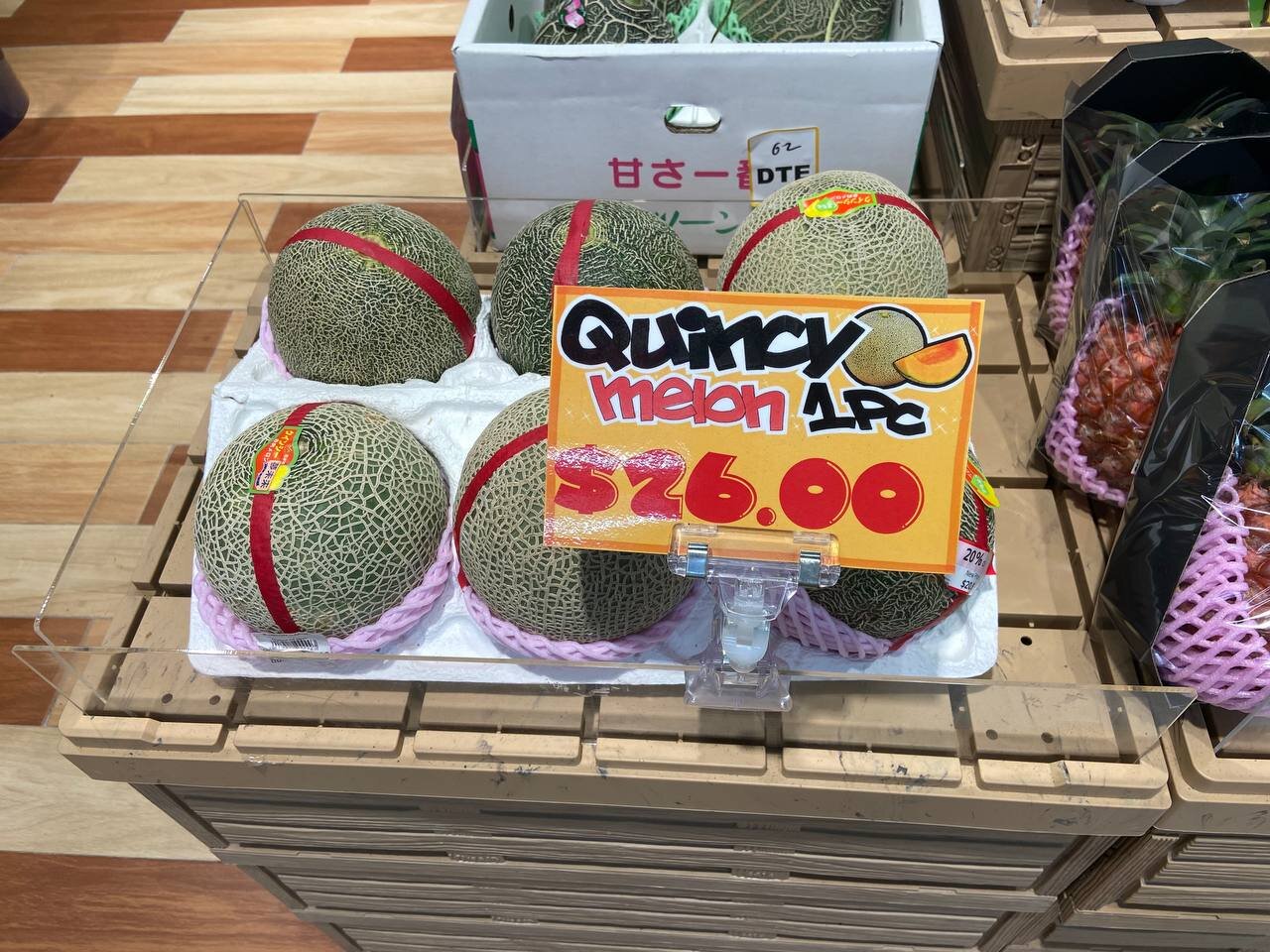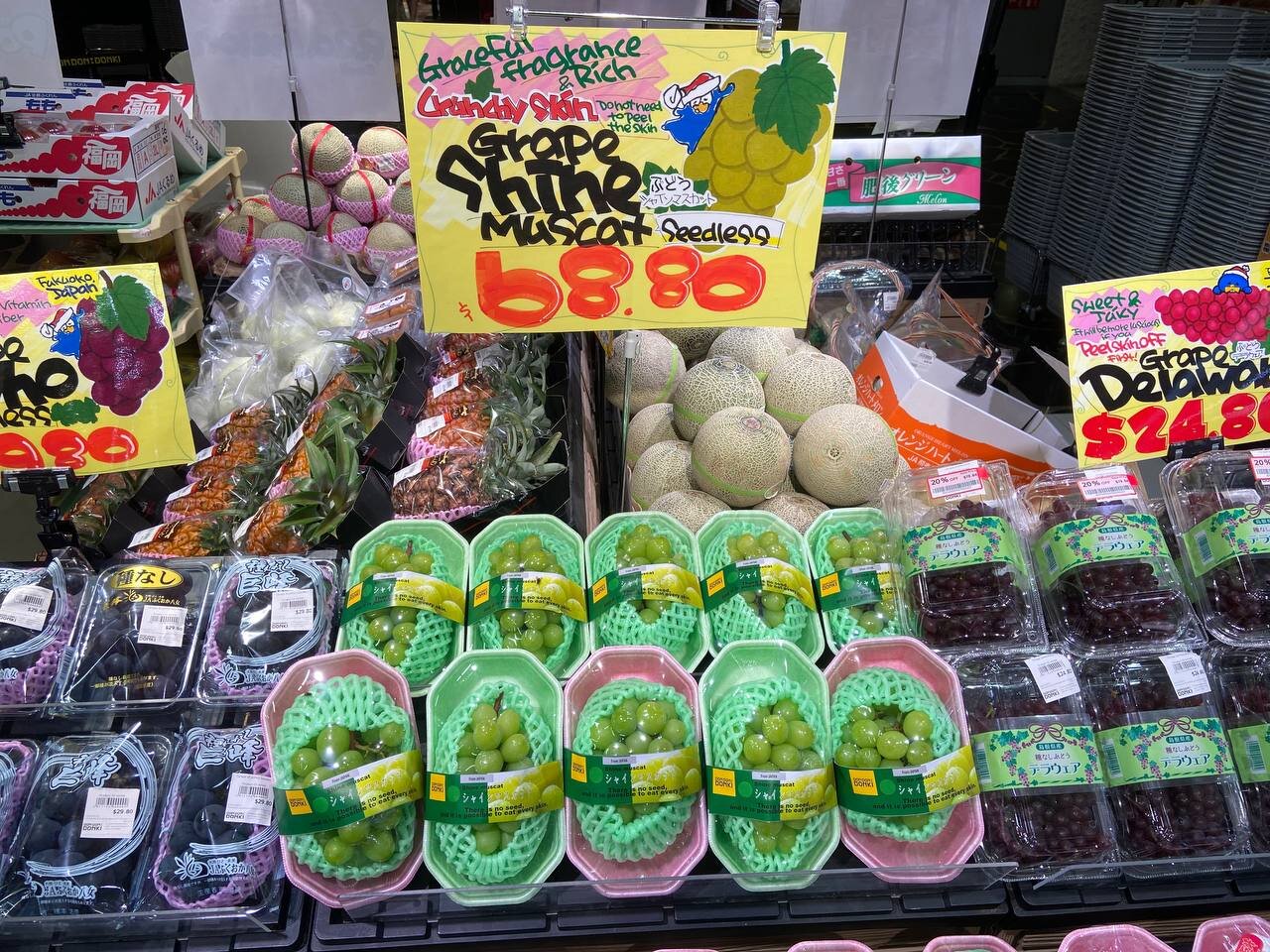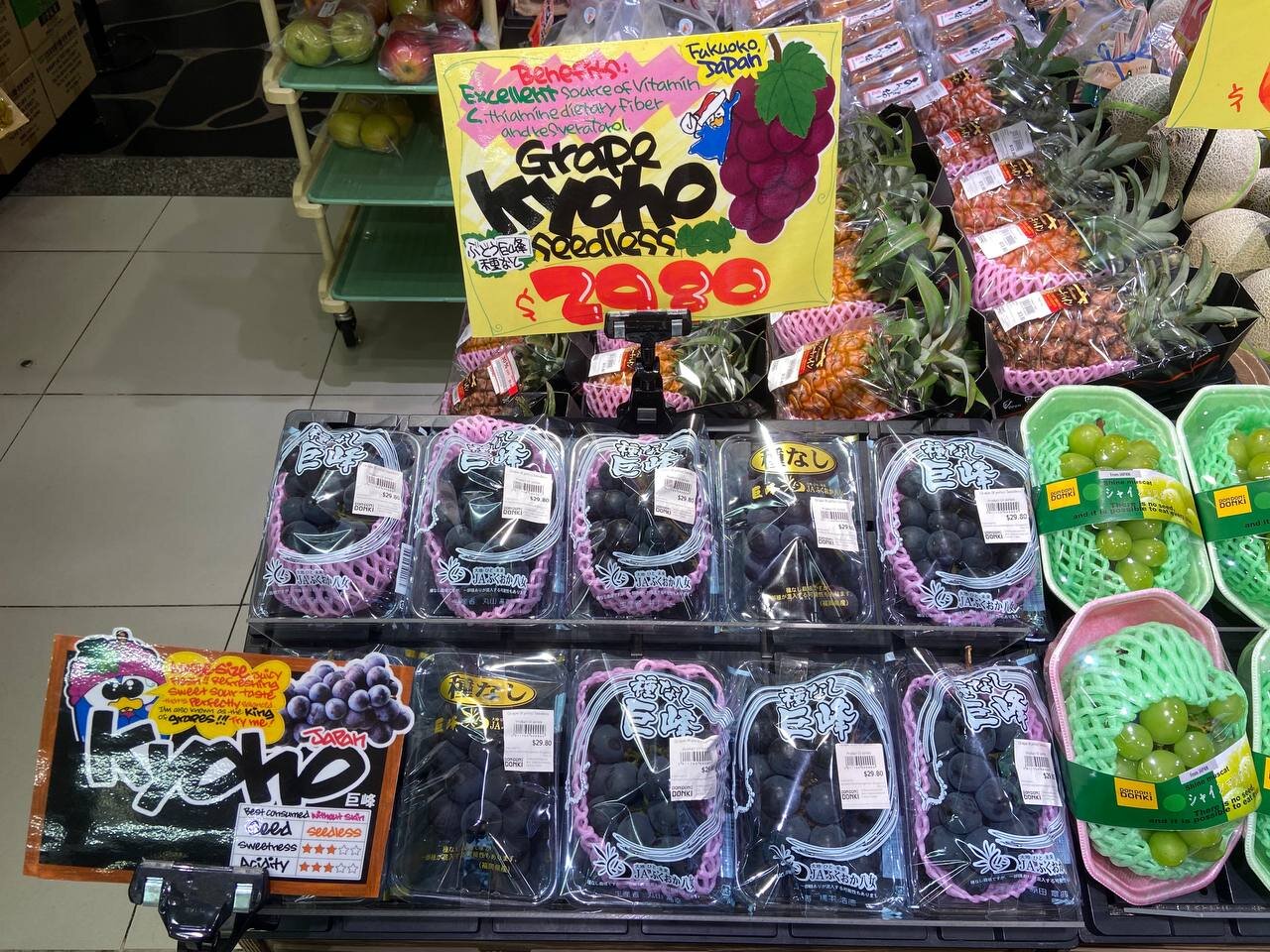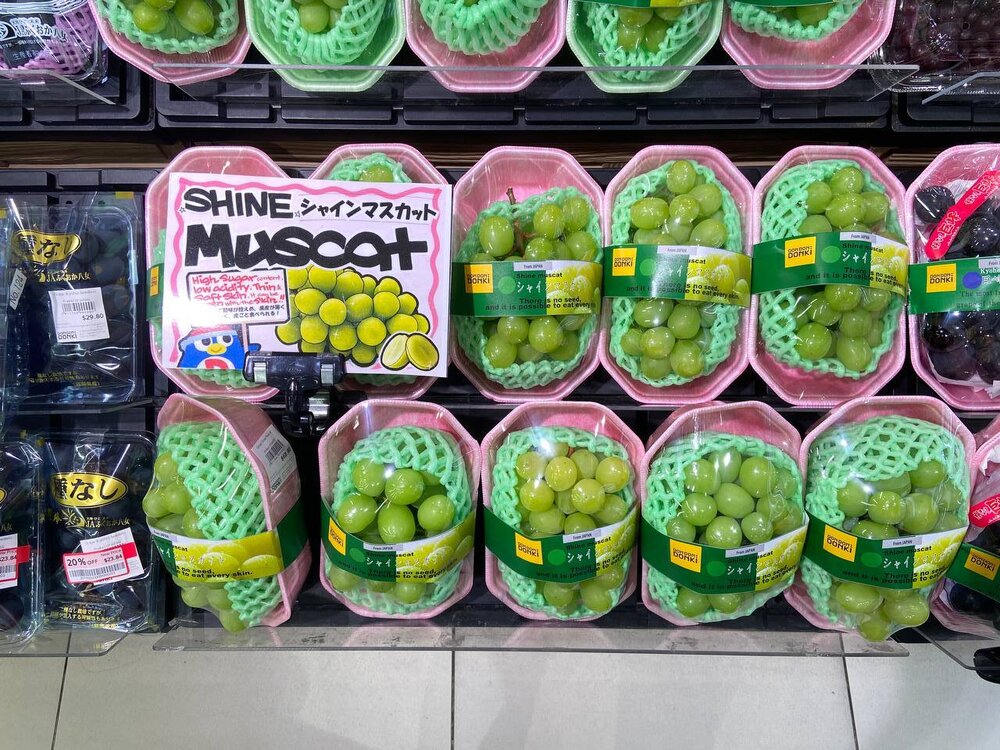Why Are Japanese Fruits At Don Don Donki So Expensive?
Do they also get the wagyu beef treatment?
BY: JOLENE TEO
(Not) An Art Hoe
Image via Reuters
Japanese discount store Don Don Donki has just opened its first outlet in the east side of Singapore at Downtown East in Pasir Ris. As an eastie, this was a dream come true after the closure of its much smaller predecessor at Changi Airport Terminal 3. When you enter the store, you are immediately greeted by a selection of fresh fruits and vegetables. However, most would do a double take at the prices of some of these fruits, especially in a supposed discount store known for selling food and household items. So why are Japanese fruits in particular so expensive?
Image credits Little Day Out
The prices are not only in the double digits range, but even close to a hundred dollars for a melon. Yes, you read that correctly, unlike this woman who almost bought a RM250 (SGD $80) melon for her pet hedgehog, having mistakenly read it as RM25. Luckily she returned the melon safely back to the counter where she found it without dropping it.
Image via The Smart Local
While I did not find an $80 melon during my trip down to Don Don Donki (the most expensive melon was a $26 quincy melon), I did find seedless shine muscat grapes going for a hefty price tag of $68.80 a bunch. These grapes are meant to be eaten with its crunchy, soft, thin skin and supposedly has a graceful fragrance and rich taste.
Japanese grapes that are meant to be eaten with skin are like the Kyoho seedless grapes from Fukuoka. Known as the “king of grapes”, they are large with a refreshing sweet sour taste and were selling for $29.80. Apparently Japanese tend to skin their grapes before eating as the skin is associated with dirt or a bitter taste and agricultural chemicals.
On to the golden question: Why are Japanese fruits so expensive? This answer goes back to the country’s cultural history as samurais of ancient Japan would offer the best fruits such as melons or tangerines to their leaders as a sign of deep appreciation or loyalty. This practice of gifting the best and juiciest fruits has thus become part of Japan’s culture of gift exchange up till today. Fruits are given during all kinds of occasions such as birthdays, to bosses, hospital visits, and so on much like how other cultures gift cakes or flowers.
Building on the practice of gifting fruits, these luxurious fruits are specially grown, curated, and packaged for this purpose, hence the price. Besides tasting exquisite, the fruits also receive premium care to ensure they look perfect and almost unreal. An example is the Crown Melon that gets constant care from farmers for 100 days, controlled constant temperatures, hats to protect them from sun damage, and massaged by farmers - yes they do get the wagyu beef treatment.
Image via Reuters
After going through strict quality control, fruits are also sorted into different grades based on appearance and taste. In the case of crown melons - yuki, shiro, yama, and fuji, with only 1 in 1000 melons being awarded the highest grade of fuji. Hence, the rarity and number of high grade fruits also pushes the prices up.
Image via Washington Post
The hard work of the farmers to ensure the best fruits are grown, as well as the cultural significance of gifting fruits certainly warrants a big price tag for these premium fruits, and understandably so. But whether it is worth it to pay USD $45,500 for a pair of Yūbari King Melons (the most expensive fruit auctioned) or $11,000 for a bunch of Roman Ruby Grapes, is another question.
JOLENE TEO | (Not) An Art Hoe
Jolene Teo is a contemporary and modern art enthusiast, writer, curator, and cultural researcher. She enjoys exploring the areas inbetween art, design, critical narratives, pop culture, and the cult of collecting. She is socially awkward but will talk to you about plants, art, anime, and life. Some part of her still wishes she can become an artist one day. Send her memes @joteo_





















